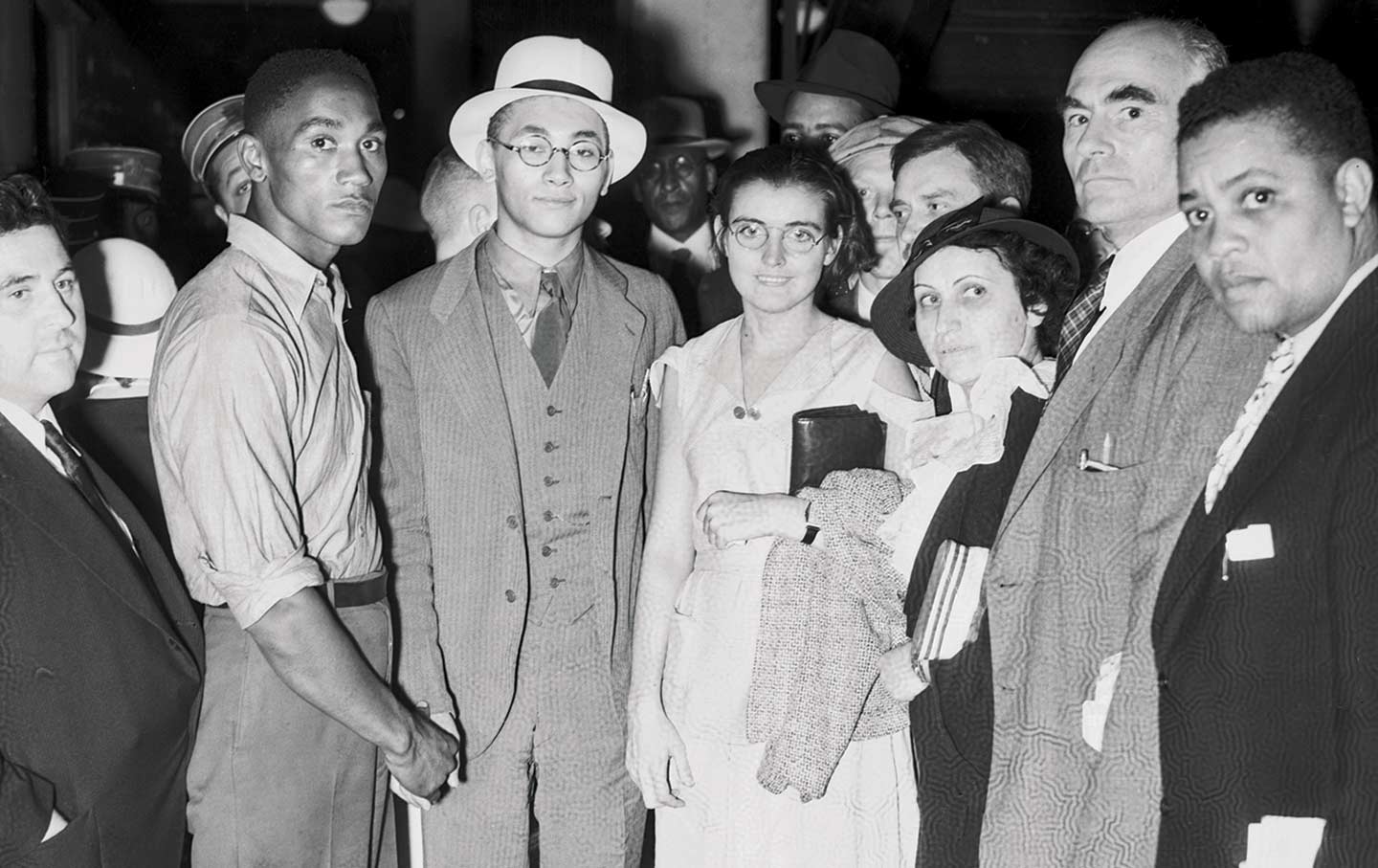
"Racism has often accompanied the repression of civil liberties. In the antebellum period, the defenders of slavery criminalized teaching the enslaved to read or write; banned the voicing of antislavery sentiment in colleges; prohibited the distribution of antislavery literature through the mails; and proscribed consideration of antislavery petitions in Congress. Militant foes of abolitionism destroyed presses and assassinated editors. A mob dragged William Lloyd Garrison, the editor of The Liberator, through the streets of Boston, while another temporarily silenced abolitionism's greatest orator, Frederick Douglass, who later remarked aptly that "slavery cannot tolerate free speech.""
"In the long, terrible period of racist reaction that followed Reconstruction, proponents of white supremacy continued to try to stifle anti-racist dissent. In 1892, in Memphis, they destroyed the press of the indomitable anti-lynching journalist Ida B. Wells and threatened to kill her if she returned to her home there. During World War I, the federal government prosecuted and imprisoned the editor G.W. Bouldin under the Espionage Act because his newspaper published a letter that supported a protest organized by Black soldiers in response to the police beating of an African American corporal, Charles Baltimore."
"During the McCarthy era, racists used the Red Scare to isolate racial-justice activists on the left, such as W.E.B. Du Bois and Paul Robeson, whose passports were canceled to prevent them from offering opinions abroad that the US secretary of state deemed injurious to the country. During the Second Reconstruction in the 1950s and '60s, white supremacists sought to squelch dissent by outing members of the National Association for the Advancement of Colored People (NAACP) in areas where a known affiliation would cause the loss of employment, the withdrawal of credit, or threats of violent retribution."
Racist forces in the United States have repeatedly undermined civil liberties and silenced anti-racist voices from the antebellum era through the twentieth century. Slaveholders banned literacy and antislavery expression while abolitionists faced mob violence and press destruction. Post-Reconstruction white supremacists destroyed Ida B. Wells's press and issued death threats. Wartime prosecutions targeted editors under the Espionage Act for supporting Black soldiers' protests. During the Red Scare, prominent racial-justice figures faced passport cancellations and isolation. In the 1950s–60s, outing NAACP members aimed to provoke job loss, credit denial, and violent retaliation, and white supremacists targeted civil-rights lawyers.
Read at The Nation
Unable to calculate read time
Collection
[
|
...
]